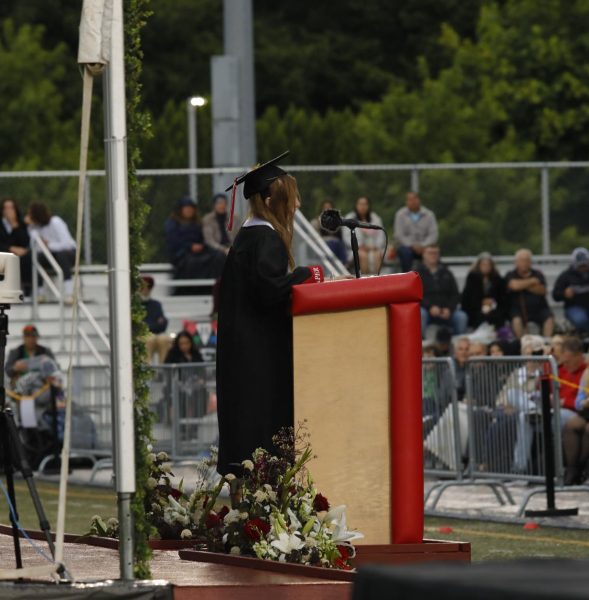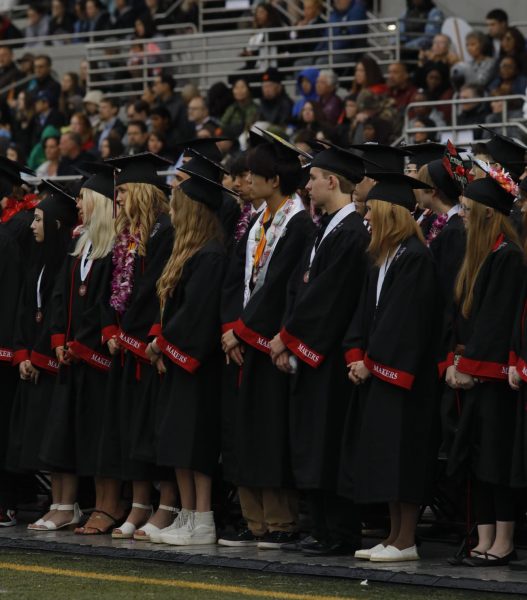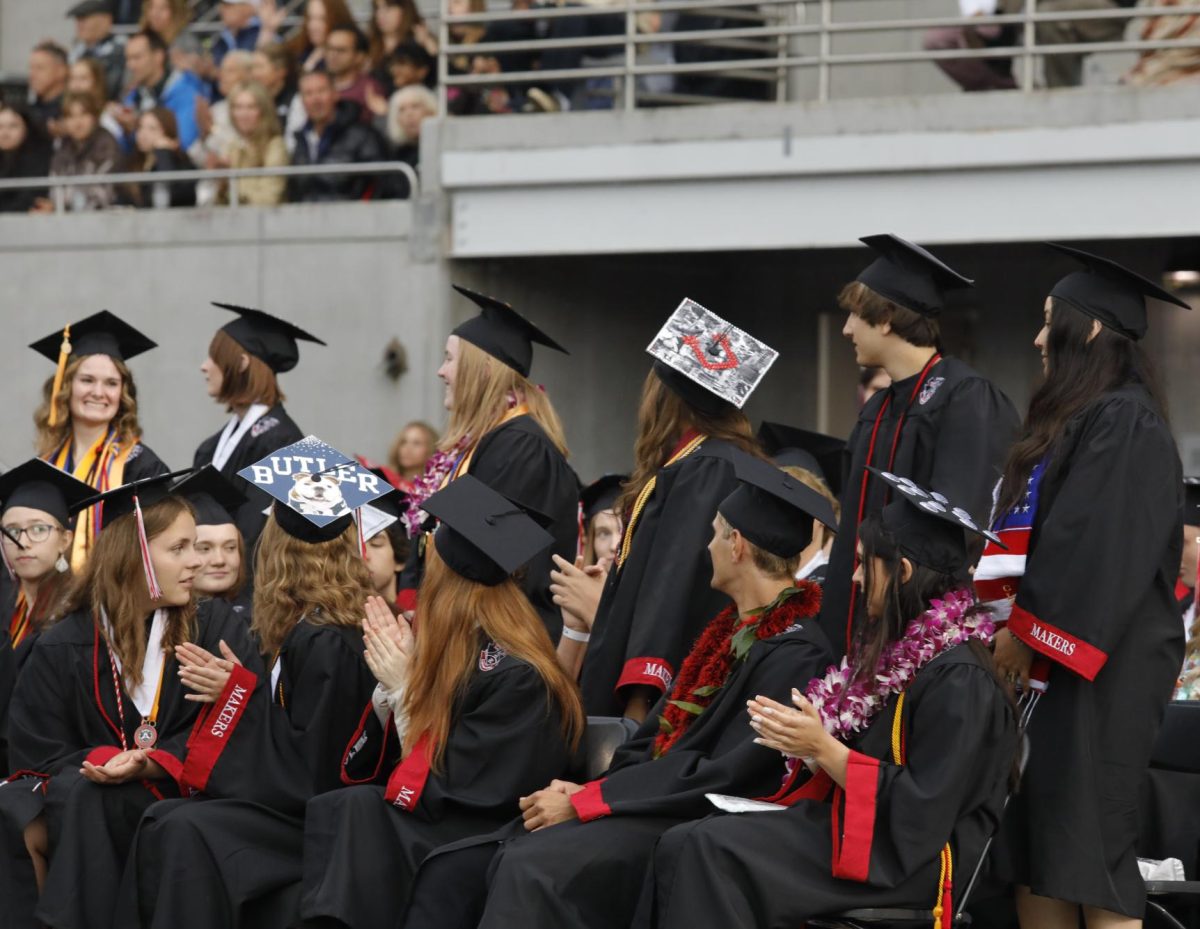Over the past five years, Camas High School (CHS) students have wondered why their school does not hold class rankings. However, the improved grading system proved to have a positive impact on the CHS community for many reasons. Principals from each school in the district met to discuss policies and procedures from differing districts. They altered class rank, grade point averages (GPA), and graduation traditions.
Class rank is based on the GPA of the students. In the past, CHS has given students extra GPA points for their participation and performance in Advanced Placement (AP) classes. This was restricted to AP classes, excluding Clark Community College, University of Washington, and Central Washington University courses. While all options are considered college-level, extra credit is only given to students taking AP courses.
Tom Morris, the current associate principal for first-year students at CHS, said, “It seemed unfair that there was just [extra credit for] AP. Some would say, ‘I’m challenging myself for this hard class,’ well, so are kids at Clark and kids taking college classes in the high school, and they’re not weighted.”

Since then, the Camas School District (CSD) has made changes to promote fairness and equality in opportunity. Now, the school weighs GPAs, affecting the annual valedictorian and salutatorian at graduation. However, this change has created controversy among students.
“The absence of valedictorian and salutatorian systems, as well as GPA weighting, has made it much harder to get into college,” CHS senior Shiven Friedeman said.
Lots of students feel like it affects their status in college. According to college counselors, one of the first things they do when they get an unweighted GPA is they weigh it.
“They unweight it to put everybody in the U.S. in the same playing field,” Morris said.
Another flaw in the old system is that GPAs were calculated based on the number of courses taken. Taking more classes can result in a lower overall GPA, confusing many students willing to accept various courses through middle school or over the summer—committing to what they think is extra credit without knowing the effects on their GPA.
While some students are against these changes, others believe it does not have much of an impact on their future education.
“Valedictorian is stressful, but it doesn’t affect me as much because I am going to college for rugby,” CHS senior Marc Jackson said.

For worries about college applications, there are options to select when a high school does or does not have weighted GPAs, uses a percentile system, and many other methods districts can use to calculate GPAs.
As for valedictorian and salutatorian, CHS has removed these roles and created new ways to give a spotlight to students. Any senior can apply to perform a speech at graduation by sending in their written address. One speaker is selected by administrators and the other by students.
Before the new system, calculating GPAs was a complicated job for only the incremental benefit of the school’s students.
“It’s a confusing process and not a fair process,” Morris said.
Change is vital to growth in the Camas community. Making adjustments may feel uncomfortable, but they prove necessary for progress.

































